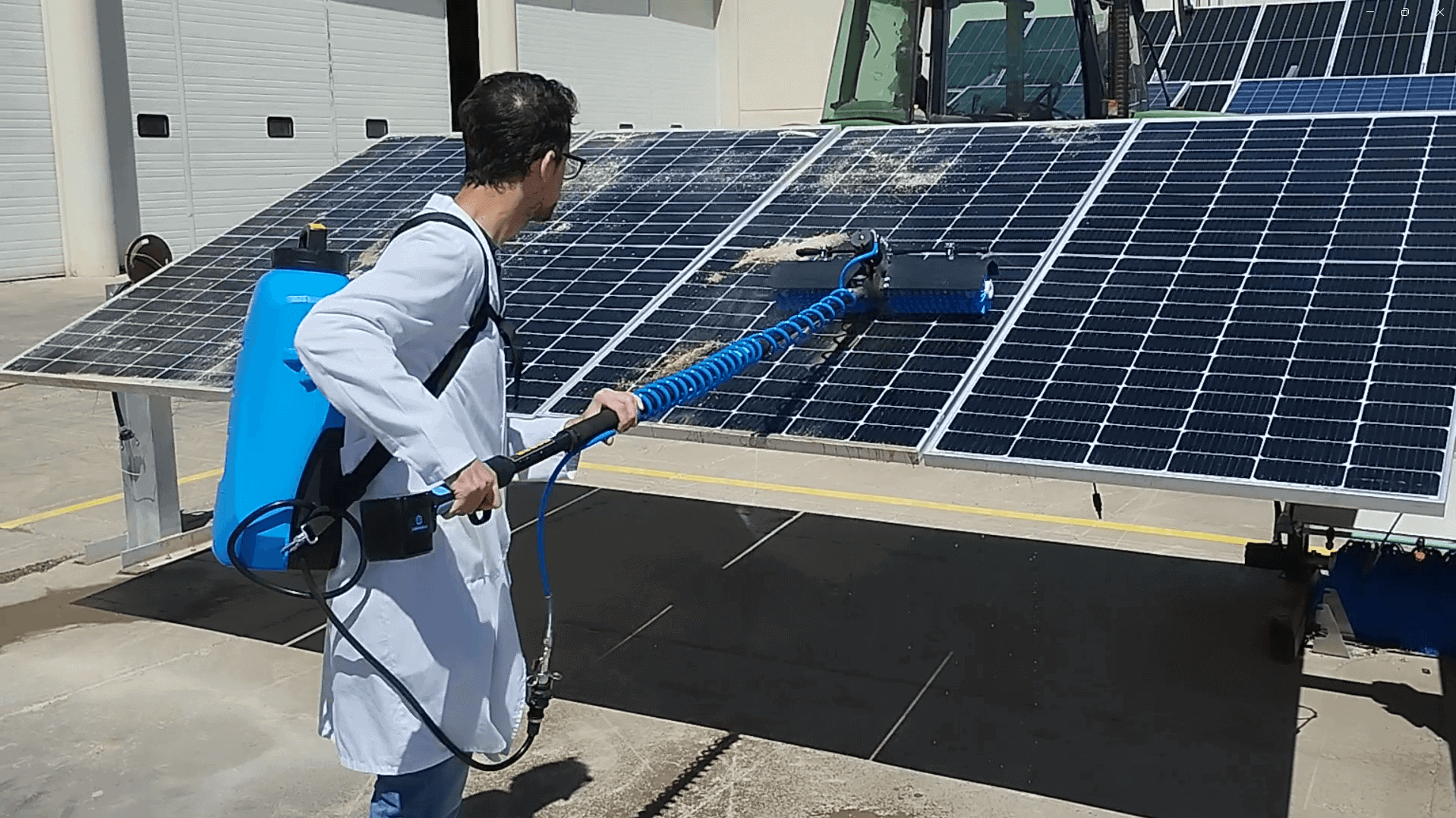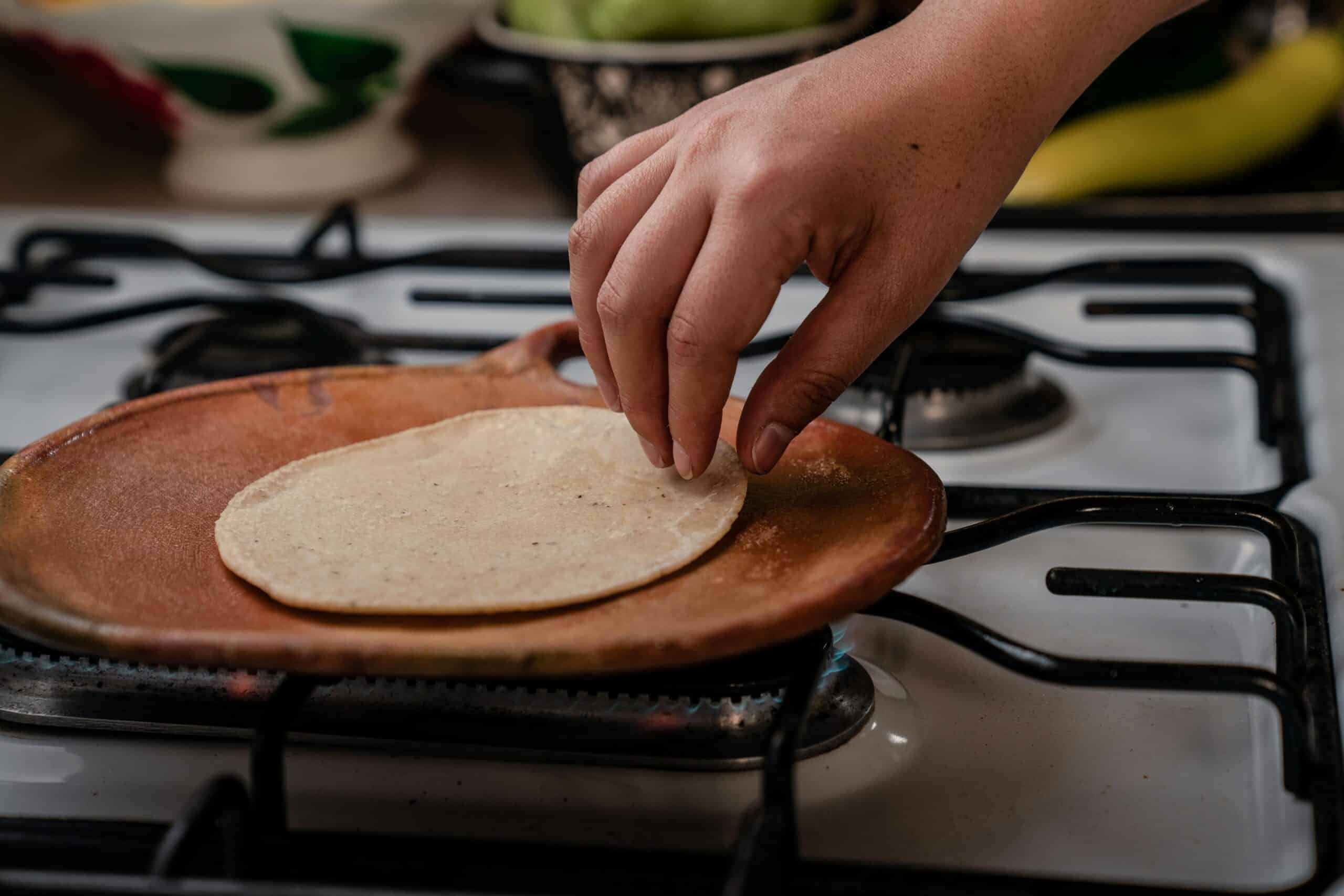The recent shift to renewable energy is taking most American homeowners by storm. In fact, the US Department of Energy projects growth in solar energy use within the US to more than one per seven American homes by 2030. Despite its popularity, most people still question, “Do solar panels work in winter?”
Solar panels produce energy throughout the year, even in winter weather. After all, your panels contain solar cells that diffuse sunlight to keep your home powered in cold months. Keep reading to find out how solar panels work and tips for maximizing your investment in freezing temperatures.
How Solar Panels Work
Solar panels are energy conversion devices that are more efficient than the normal devices used for many different works. Solar panels can do most of the work.
For example, a good solar panel can convert sunlight into electricity; with the help of different photovoltaic cells you can do various tasks like absorbing sunlight, separating silicon layers, and generating power from loose photons. These panels make energy conversion very efficient by giving you different-different possibilities that help to complete your power generation task.
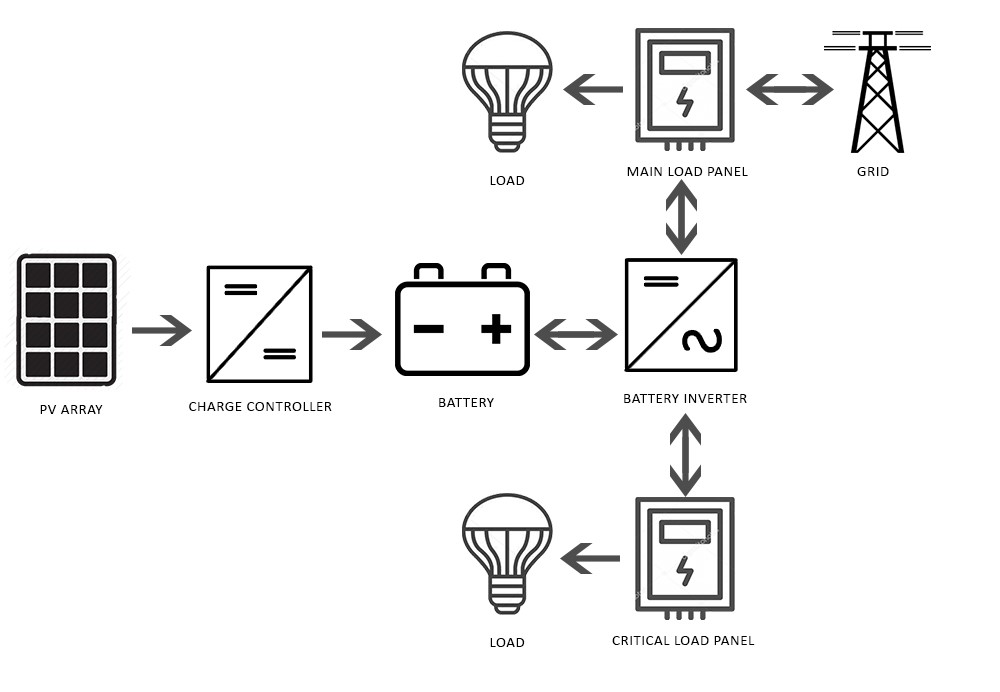
Image Credits: Theenergymasters.org
At this stage, the energy generated from your solar panels is direct current (DC). Solar systems consist of inverters that help convert DC to alternating current (AC). AC electricity is distributed through your electrical grid to power your home and appliances.
Note: Like all other electrical systems, a professional should do your solar panel installation. The system should have meters and circuits to ensure safe and optimal solar panel performance.
Solar Panel Output in Winter Months
Solar panels work harder in the coldest, sunniest months of winter, but winter brings less sunshine. So, during the first days of winter, the solar panels can operate at a peak temperature of about 77 degrees Fahrenheit. The short days of the winter season decrease power output.
Although your solar panels only work efficiently for a few hours, they can still produce adequate energy. The amount of electricity produced is often enough to power households throughout winter. However, electricity production from solar panels can be significantly lower in extremely cold areas like northern climates.
How the Winter Weather Affects Solar Performance
Of course, there’s heavy snow in the winter and often even some rain sprinkled on top, but we’re still talking about freezing temperatures. Solar performance is unique to each weather condition and can affect electricity production.
The best temperatures for solar production are in the chill since the solar panels cannot overheat like they can in the summer. But as temperatures fall further, so do the days, and they tend to be accompanied by less solar performance.
Solar panels are covered in snow, which falls on top of photovoltaic cells that do not allow sunlight. This could reduce your solar panel’s ability to produce electricity.
Rainfall in winter months can help your solar panels generate more electricity. Precipitation clears debris and light dust that block light on solar panel surfaces. As a result, you end up with clear screens that harness the additional light intensity for efficient electricity production.
Increasing Solar System Efficiency During Winter
Solar panels produce electricity in winter, but the output amount depends on factors. Even if the output is inadequate, efficient system use will ensure that your household can use electricity through winter.
To maximize solar system efficiency, we should jump on increasing output, but not necessarily at the cost of our electricity unless we can conserve it whenever possible. Here’s how.
How to Improve Energy Output
While solar panels work in the winter, extreme weather conditions can affect optimal electricity production. Increasing energy output will allow you to enjoy the full benefits of solar energy in winter. Let’s find out how you can ensure efficiency!
1. Tracking Battery Discharge
Battery discharge can be negligible in warmer months but gets riskier during winter. High discharge levels can affect your system’s ability to serve you satisfactorily. Track battery discharge during winter to keep your home powered through the colder climate.
Note: You can add a solar battery for additional power storage. This is particularly helpful in cold-weather states like Alaska, North Dakota, and Minnesota as households prepare for heavy snowfall.
2. Clean Your Solar Panels Regularly
Image Credits: scmsolar.com
Snow cover on your panel’s surface can negatively impact its ability to absorb sunlight. Another way to support electricity generation during winter is to keep your panels clean, as that will give better access to sunlight for solar cells. Remove snow on panels with a roof rake. Instead, you can invest in darker solar panels to warm up and melt the snow.
If cleaning your solar panel’s surface with chemical products or rough scrubbers, avoid them, for it will damage the panel and reduce its ability to collect and convert the energy contained in the sun. The surface itself had these wear away and prevented it from working properly. To play it safe, remember to turn off the solar panel before you begin to clean. To clean solar panels, check the manufacturer’s instructions or consult an expert on how to do it.
3. Tilt Panels for Optimal Exposure
Solar panels generate maximum output when they receive direct sunlight. Since the earth’s tilt changes throughout the seasons, you want to angle your panels until they are perpendicular to the sun. That will make solar power generation more optimized since the inclination exposes the PV cells of the solar panel to direct light.
Ways to Conserve Energy Produced
Creating an efficient solar panel system at home hinges on reducing energy wastage. Since power output in winter can drop significantly, you should try reducing consumption. Let’s learn more about it!
1. Prioritize Essential Uses
Winter months are mostly spent indoors, so it is possible to overuse appliances. Unnecessary appliance use can deplete your energy reserves. This can prevent your winter solar panels from serving you satisfactorily.
Conserve solar energy by only focusing on essential uses. Tasks like heating and powering water pumps are vital for survival, so prioritize them.
2. Switching to Energy-Efficient Fixtures and Appliances
Over time, home appliances and old and outdated lighting fixtures consume more energy. Inefficient appliances waste energy, which can prove expensive in the long run. Conserve more energy by investing in energy-efficient fixtures and appliances.
In cold weather, energy-efficient appliances and bulbs tend to work better and last longer. It is often smart to add such additions that regulate performance as needed. For instance, smart thermostats adjust the temperature in your home—which entails setting it lower than you normally would—saving you from the headache of having to keep your HVAC system on all day long.
Factors Affecting Solar Panel Functionality
Solar panel power production varies depending on its access to the sun’s rays. Some factors affecting your solar panel’s ability to produce electricity include:
a) Shading
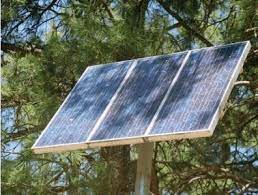
Image Credits: Researchgate.net
Barriers covering your solar panels can diffuse the sun’s rays, affecting their solar energy output. As a result, experts install solar panels in areas where they will receive direct sunlight for optimal energy production.
Shading assumes different forms, including:
-
- Heavy snow covering solar panels
-
- Buildings and trees casting shade over the solar panel surface
-
- Dust from sandstorms
-
- Leaves and debris on the solar panels.
-
- Cloud cover over prolonged periods
Clearing any surface debris, dust, or snow cover can improve solar output. In the fall, use a roof rake to remove leaves. Positioning solar panels away from tall buildings and trees also helps them work better.
b) Climate
Solar cell output depends on climate conditions such as wind, rain, and temperature, and it can only run when the sun’s light is available. These conditions reduce the sun’s heat and crop direct light, both causing a problem with the photoelectric conversion.
Efficient photoelectric conversion occurs at average temperatures. Solar panels are less efficient in high summer temperatures since they require light intensity, not heat.
c) Solar Panel Angling
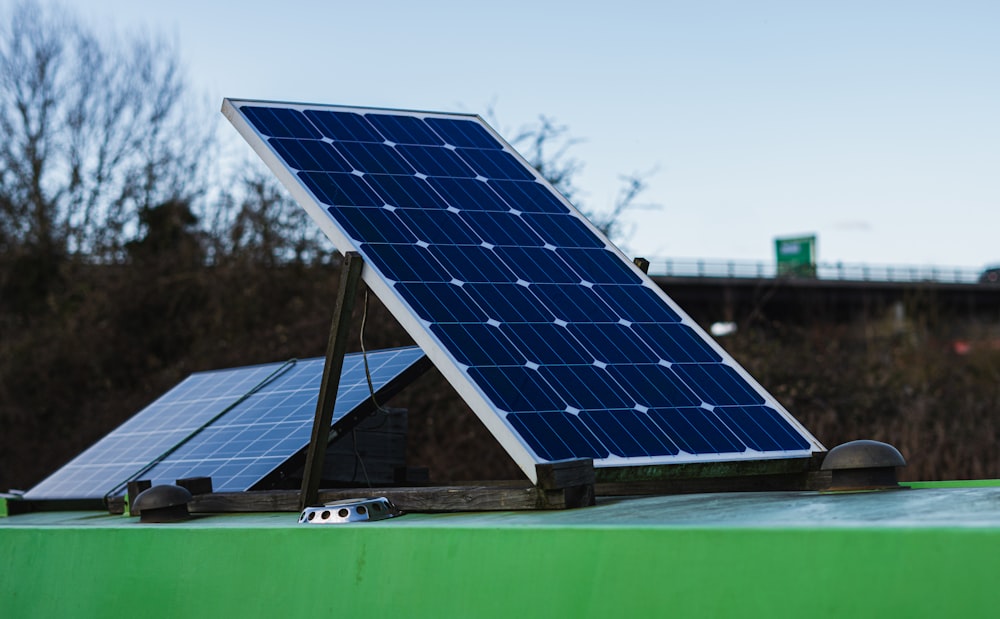
Image Credits: Unsplash.com
Solar power professionals suggest using daylight hours best by working with the optimal inclination angle. When solar panel photovoltaic cells are directly exposed to sunlight, then the energy they produce increases.
Earth’s axis may have shifted so that the sun’s rays hit the Earth less directly. This means installing solar panels at high angles to capture more solar radiation won’t be beneficial. However, lowering the panel’s pitch maximizes the amount of sunlight exposure and, therefore, generates more electricity.
Conclusion
Installing solar panels at home is an excellent step towards achieving a sustainable and renewable energy source. Solar power is available throughout the year, even in cold winter conditions. Follow the above tricks to get the most out of your solar panels in cold weather.
FAQs
1. How can you prevent snow buildup on solar panels?
Snow removal is the easiest and most practical way to prevent buildup on your solar panels. Rainfall can also help you remove snow and debris from solar panel surfaces.
2. Do I need to protect my solar panels during winter?
You do not need to protect your solar panels during winter. Solar panels are made of sturdy material and can withstand harsh winter conditions. This means that your panels will be durable and guarantee a great return on investment.
Featured Image Credits: Unsplash.com


